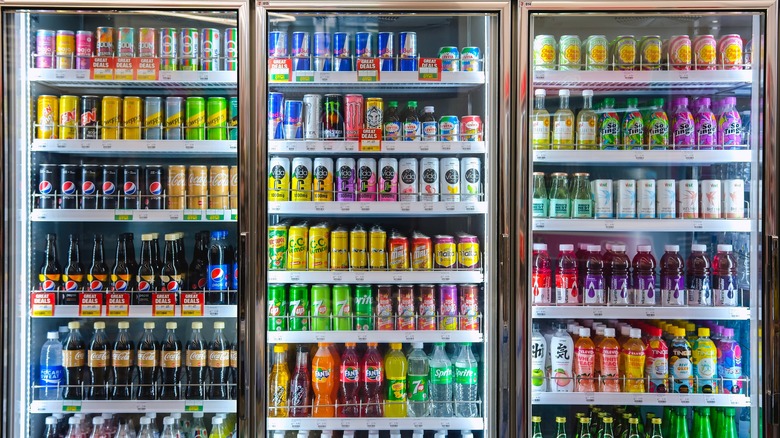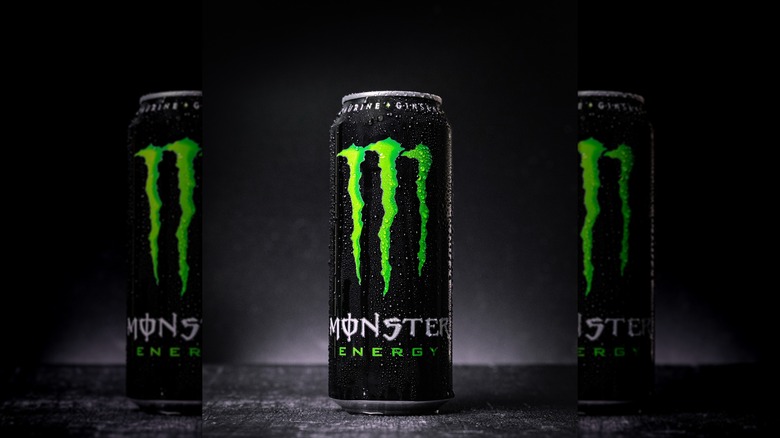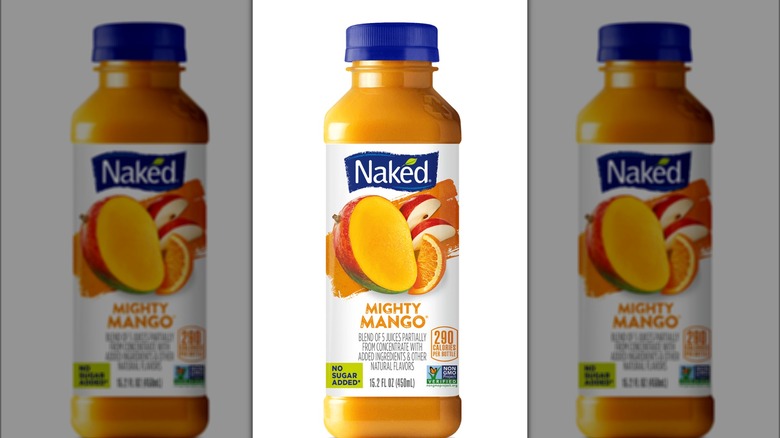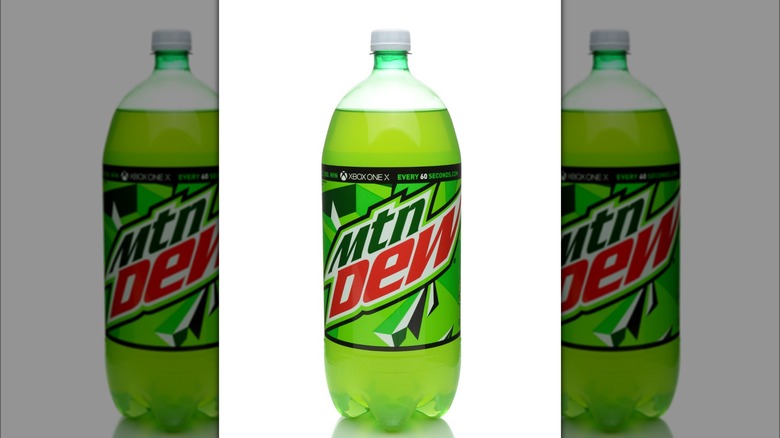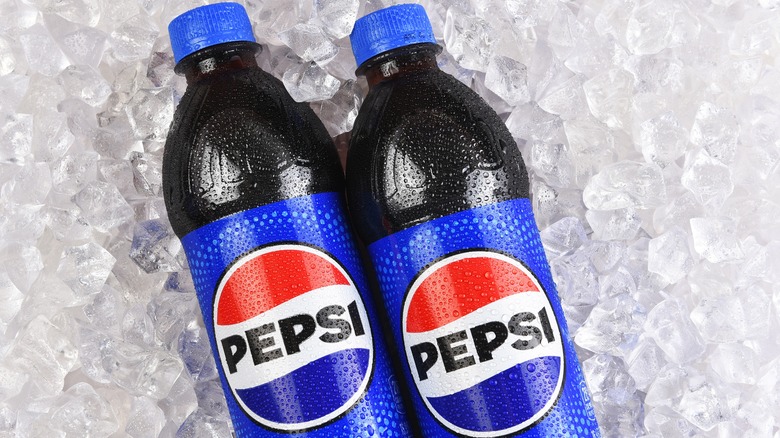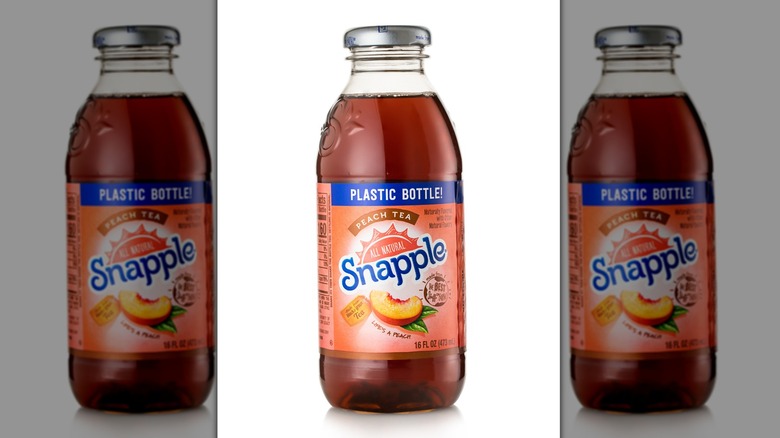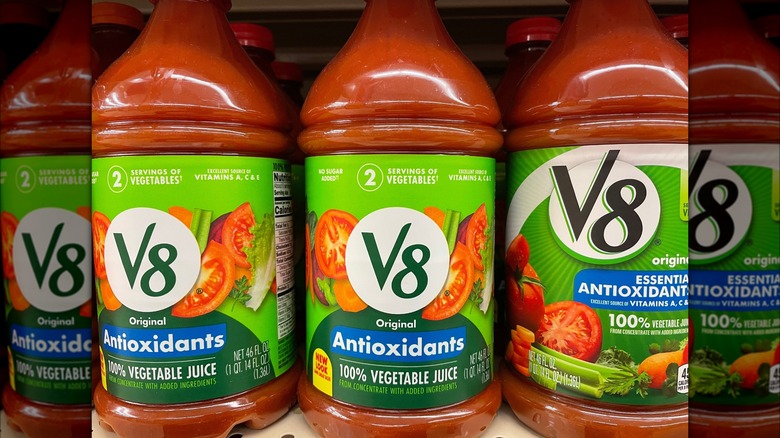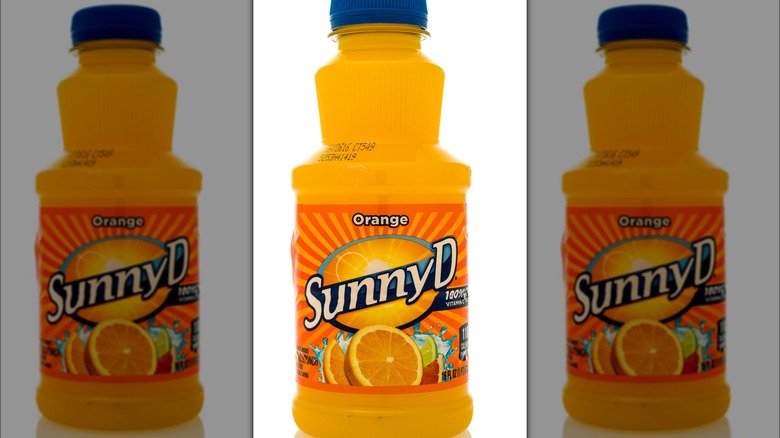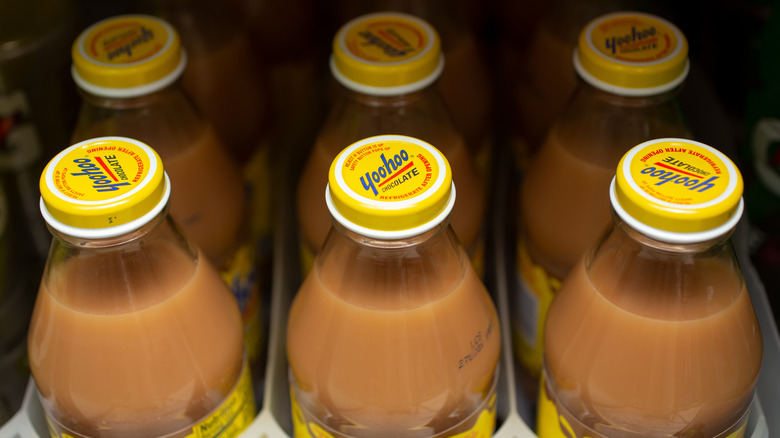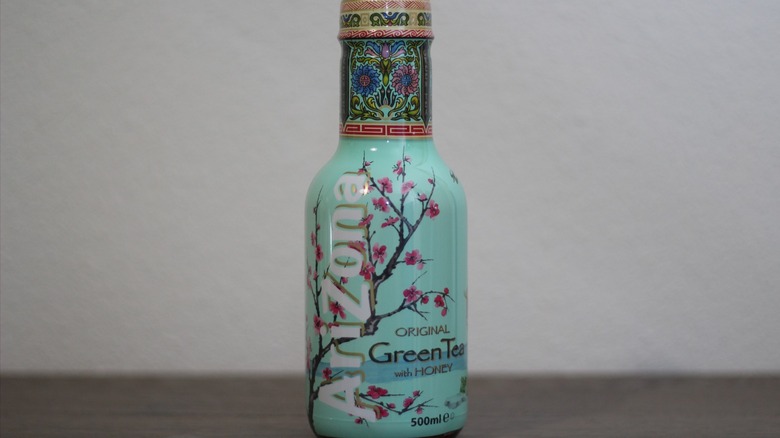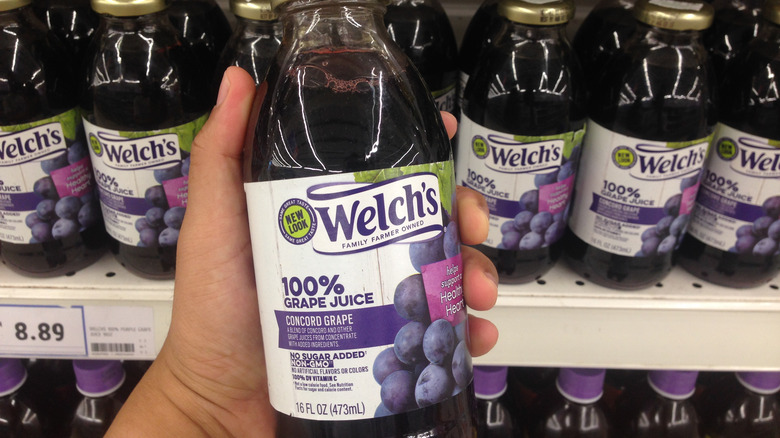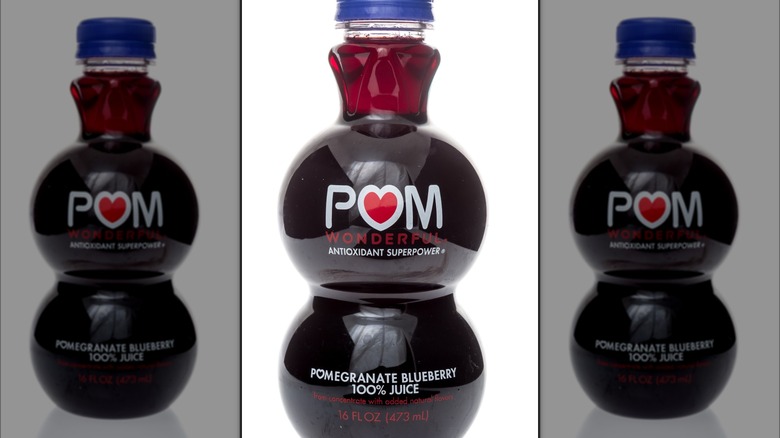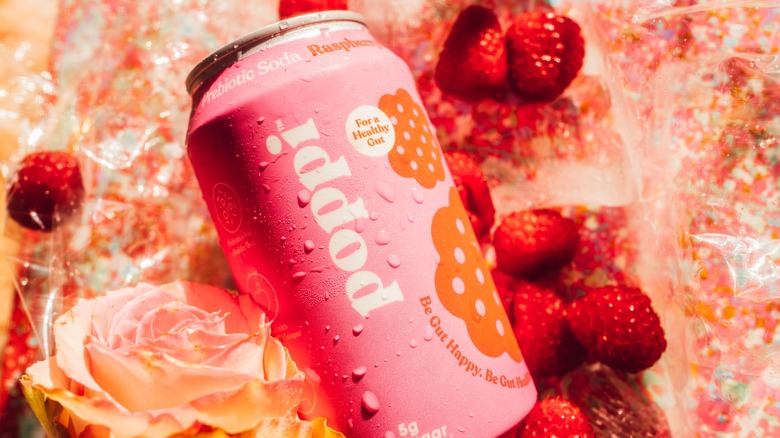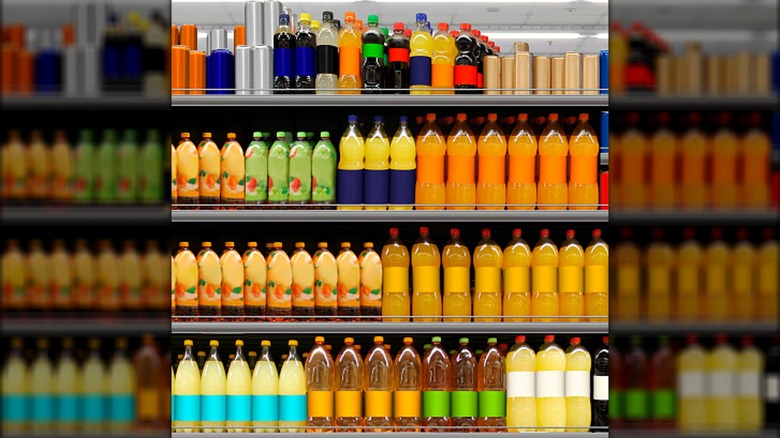The 12 Unhealthiest Bottled Drinks You Can Buy
Have you ever habitually grabbed a bottled beverage from the refrigerator in a convenience store or your local bagel shop, not really thinking about the health qualities of the drink? You might just want something refreshing to get you through the rest of your day, but little do you know, it could be negatively affecting your health.
Sugar is a huge component that likes to hide in yummy drinks, and too much of it can affect dental health, weight, and more. We all know that soda has sugar, but have you ever actually realized how much? On the flip side, some drinks that are generally marketed as a healthy beverage somehow contain almost as much sugar as a bottle of Coca-Cola.
Other popular drinks have high caffeine levels, additives, acids that can affect the digestive system, and more. Having a drink like this every so often won't send you to the hospital or dentist needing emergency care — however, many people regularly consume them. The drinks become addicting and can be hard to resist, especially when they are so readily available.
We've collected a list of 12 of the unhealthiest bottled drinks on the market. At the end of this article we'll further explain how we made our selection. You may be aware that some of these drinks aren't that healthy, but you'll be shocked to see others on the list at all.
1. Monster Energy Drink
Many people love energy drinks and rely on them to get through the day. For people who don't like the taste of coffee or want the convenience of being able to throw something in their bag on the go, energy drinks are usually a solid option.
Monster is a bit sneaky, because it lists many vitamins in the ingredients. This can trick people scanning the back of the bottle into thinking it's a healthy drink. However, in one 16-ounce can alone, there are 72 grams of carbohydrates and 66 grams of sugar. To put that into perspective, that is 26% of the daily recommended amount of carbohydrates for someone on a 2,000 calorie diet. For a filling meal, that is totally fine. But for a drink that is mainly sugar, you're looking at basically empty calories.
Experts say the mix of caffeine and sugar in energy drinks could lead to less-than-optimal health issues. It isn't a great combination when it comes to blood sugar — for anyone who is concerned about diabetes, they probably shouldn't mess with a Monster energy drink. There are other ingredients in the drink, like guarana and taurine, that are completely fine and healthy on their own. However, the Cleveland Health Clinic notes that the mixture of those ingredients with caffeine and sugar can cause issues like anxiety, stroke, and rapid heart rate.
2. Naked Juice Mighty Mango
Naked Juice began selling its product in 1983. It's an easily accessible drink that's commonly found in stores like CVS or Walgreens, as well as local sandwich shops and grocery stores. With the photos of fruit right on the label and the clean branding, one might assume this drink is healthy.
A 15.2-ounce bottle of the Mighty Mango flavor, for example, contains juice from 1 ¼ mangoes, 1 ¾ apples, ½ an orange, ⅓ of a banana, and a hint of lemon. However, just because those amounts are listed on the bottle doesn't mean that drinking this would be equivalent to eating that much fruit. The drink is completely devoid of all of the fiber you would get from the fruits, which is one of the reasons why it is healthy in the first place.
The Mighty Mango Naked Juice has a whopping 57 grams of sugar, 68 carbohydrates, and 290 calories. This amount of calories for a drink is very high — especially because it is not likely to leave you full or satisfied. The type of sugar present in this drink is fructose, which is naturally occurring in fruit. Still, consuming high volumes of fructose can lead to a slower metabolism and weight gain. In order to prevent this outcome, it's best to drink Naked Juice in moderation.
3. Mountain Dew
Mountain Dew's yellowish green color is iconic, and many people consider it their soda of choice. At this point, everyone is aware that most classic sodas on the market aren't healthy. With the excessive sugar, empty calories, additives, dyes, and more, it's not really something that should be consumed regularly.
One thing that concerns people about Mountain Dew is dye Yellow 5, which gives the drink its color. There are worries this dye causes hyperactivity in children and is a possible carcinogenic. This shouldn't concern a casual consumer, but if someone drinks this soda regularly, research shows the dye could cause health issues.
Mountain Dew also contains high fructose corn syrup, which is a sweetener that comes from corn. It can cause several problems, like inflammation in the body, weight gain, leaky gut syndrome, and more. What's very interesting is that the U.K.'s version of Mountain Dew is made with regular sugar as opposed to high fructose corn syrup — this is because the U.K. has different regulations as to what can be added to food.
4. Pepsi
Pepsi is another incredibly popular soda brand, originally created as a tasty drink to cure indigestion in 1898. Now, it' a widely popular drink served in restaurants, sold in grocery and convenience stores, and available in vending machines.
The main concerning ingredient in Pepsi is sugar, with 69 grams in a 20-ounce bottle. If you were to take the sugar out and measure it, it would fill about ⅓ cup. That's pretty shocking to think about, considering it may not be the only sugary item you consume in a day. Sugar can affect our health in many negative ways, and if you drink Pepsi consistently, you are only hurting yourself.
Dental health is important to consider. Bad bacteria love sugar, so the more sugar you consume, the more bad bacteria will harbor in your mouth — leading to bad breath, tooth decay, and other issues. Digesting that much sugar isn't all great either. It can raise your blood pressure, increase risk of diabetes, cause weight gain, and affect your heart health.
5. Snapple Peach Tea
One of the best sounds on earth is of the Snapple top popping open. What's even better is the refreshing taste of the flavorful tea hitting your taste buds. Most people are aware of the dangers of consuming soda. However, many don't consider the same for something like tea, which is supposed to be a beverage that offers health benefits.
Black tea is said to reduce inflammation in the body due to its antioxidant content, and many people opt for tea because of its caffeine levels. However, those inflammation benefits are completely overshadowed by the sugar content in this beverage. Snapple Peach Tea has 40 grams of added sugars, which can quickly lead to inflammation in the body if you consume it semi-regularly.
What does inflammation do, anyways? When our body is inflamed, our immune system activates to try to fight it off, killing healthy cells in the process. This can lead to cognitive issues like depression, anxiety, and even Alzheimer's. It can also cause overall body pain, frequent infections, and fatigue. Stick to brewing your own tea, and add just a dash of sugar or honey for sweetness.
6. V8 Original
V8 is made with 100% vegetable juice, primarily tomato juice, along with carrot, celery, beets, and other natural ingredients. It advertises itself as having two servings of vegetables in every 8-ounce portion, however, that claim isn't necessarily accurate. Drinking the juice of a vegetable is vastly different from eating the vegetable itself.
The main nutrient that is lost when drinking versus eating a vegetable is fiber, since it comes from the outer skins which are removed. Fiber is important for overall health — it helps with our digestion, heart health, and blood sugar. The V8 Original has 2 grams of fiber per serving, which doesn't compare to eating two servings of actual vegetables.
Another thing to pay attention to with V8 is the amount of sodium. There are 640 milligrams per 8-ounce serving, which is about 28% of the FDA's recommended amount. Sodium can add up throughout the day, and if you are getting a lot of it in a drink, chances are you'll go over the recommended amount with your food intake. A diet high in sodium can increase your risk of heart disease, which can lead to stroke or a heart attack. Don't undo the good of getting your servings of vegetables by overdoing it with your salt intake.
7. SunnyD
SunnyD was always a fun drink stocked in the fridge over the summer as a cold beverage to cool yourself down after a long day playing outside. It's made with a blend of concentrated juices: orange, apple, lime, grapefruit, and pear — however, the label says the juice makes up less than 2% of ingredients. There are also a ton of other ingredients listed on the label — some of which are unnecessary in a fruit juice, like canola oil, cellulose gum, and cornstarch.
What is it mainly made of, you ask? Water and high fructose corn syrup. With 14 grams of total sugars in an 8-ounce serving, SunnyD isn't nearly as sugary as popular soda brands or other fruit juices. However, high fructose corn syrup is a kind of sugar that can increase your risk of fatty liver disease, diabetes, and other health issues. Not so fun, anymore, is it?
The other concerning thing about SunnyD in general is that it is advertised as being a healthy option, especially because it advertises "100% vitamin C" on the label. Sure, it contains vitamin C, but so does freshly squeezed orange juice, which doesn't have high fructose corn syrup and other additives that could be bad for your health.
8. Yoo-hoo
Yoo-hoo is another drink that was a staple of many people's childhoods. The sweet, creamy taste of Yoo-hoo straight out of the fridge always hit the spot. What most people don't know, however, is that Yoo-hoo is not the same as having a cup of chocolate milk.
One 15.5-ounce serving of Yoo-hoo has 220 calories, most of which are carbohydrates; there are 51 grams of carbs and 47 grams of sugar. There are also 3 grams of protein and 2 grams of fat. Now, if you compare this to another popular chocolate milk beverage, the stats are way different. In the same serving size, Fairlife Chocolate Milk has 28 grams of carbs, 10 grams of fat, 28 grams of protein, and 26 grams of sugar.
Although Fairlife has a higher fat content, it has substantially less carbs and sugar. It also contains more protein, which is satiating and makes the drink more nutrient dense. Yoo-hoo, on the other hand, is more of a sugary drink without any true nutritional benefits. Yoo-hoo does have a distinct taste that a lot of people prefer over regular chocolate milk, but the nutrition differences are large. Do your body a favor and ditch the Yoo-hoo for some good old chocolate milk.
9. Arizona Green Tea
Green tea has become increasingly popular in the health world thanks to its multitude of healthy properties, such as L-theanine, which can help with stress and anxiety, and antioxidants to prevent inflammation. However, is drinking Arizona Green Tea the way to get this type of tea into your diet?
In one 16.9-ounce bottle of Arizona, there are 68 grams of sugar coming from honey and cane sugar, which is equal to about 17 teaspoons. The American Heart Association recommends that men have no more than 9 teaspoons of added sugar per day and women have no more than 6. If you drank the whole bottle, which most people do, you would be consuming double or triple the recommended intake — with just one drink.
The amazing benefits you were hoping to get from green tea are immediately stripped away when you're pairing it with that much sugar. Eating large amounts of sugar can affect your mood, causing anxiety and weakening your response to stress. It can also cause inflammation because of the high sugar levels in the blood. So, instead of grabbing an Arizona Green Tea to get your green tea quota of the day, try brewing your own cup instead.
10. Welch's Grape Juice
You may know Welch's from its popular commercials that aired in the '90s, featuring adorable kids who wanted to let parents know that Welch's was made with 100% Concord grapes, and not "that other stuff." When most people hear something is made from 100% fruit juice, it automatically makes them think it's healthier.
Unfortunately, we have to add Welch's Grape Juice to our list of unhealthy bottled drinks. The ingredient list is small and simple, however, the total sugar count is too high to ignore. There are 44 grams of sugar in a 10-ounce bottle. Granted, these are naturally occurring and not added, but considering this product is mainly targeted toward children, the elevated sugar count is extra concerning. The effects of eating sugar are the same in children as they are in adults, but since kids are growing, sugar can be more detrimental to their development.
According to the National Health Service, children aged four to six should not consume more than 19 grams of sugar per day, and those aged seven to 10 should not have more than 24 grams. By drinking this small bottle of grape juice, a child could be consuming over double the recommendation. Fruit is important for children to include in their diet — but it should be from the fruit itself so they are getting the fiber and nutrients together.
11. POM Wonderful Pomegranate Juice
POM Wonderful advertises its pomegranate juice as an "antioxidant superpower." It is made with 100% pomegranate juice and has a characteristically tart flavor. Pomegranates are a nutritious fruit, with tons of vitamin C, vitamin K, antioxidants, and potassium. They also have about 11 grams of fiber per fruit — which is almost half of the daily recommended amount. Along with the hefty fiber content, one pomegranate also contains 5 grams of protein.
Unfortunately, many of these positive nutritional benefits are lost when the fruit is turned into a juice. There are 0 grams of fiber in the drink, no vitamin K or C, no protein, and just a tiny bit of potassium. According to POM, the juice still contains antioxidants — which is great. However, why drink the juice when you can have the actual fruit and reap more benefits?
Like many juices, POM has lots of sugar – 68 grams in a 16-ounce bottle. This amount of sugar would at least be processed better by the body if it was matched with fiber, but because it's in juice form, it will quickly raise blood sugar levels.
12. Poppi
Poppi is a popular prebiotic soda that prides itself on having little to no sugar, being good for the gut, and tasting great. It quickly picked up steam after its debut in 2020. It became popular among celebrities, on social media, and at grocery stores. People were excited about the idea of a soda that didn't cause harm to the gut like the sugary options on the market, instead feeding good gut bacteria and aiding in better digestion.
Unfortunately, Poppi is being sued for misleading its customers in advertisements. The lawsuit claims there are very small amounts of prebiotics in each can of soda, and those minute quantities can't actually provide the health benefits Poppi claims just from one can.
Some dietitians suggest the drink could actually cause distress to the digestive system. The prebiotic fiber can lead to uncomfortable bloating, gas, and diarrhea. It's better to get your prebiotics from a healthy diet, through foods like garlic, onion, asparagus, flaxseeds, and avocado.
Methodology
In order to select the unhealthiest bottled drinks, we searched nutrition panels for components like high sugar levels, large amounts of calories, long ingredient lists, and health claims that weren't entirely true. With guidance from the American Heart Association, the FDA, and the National Health Society, we compared their guidelines to what was present in these beverages. All of these drinks are fine in moderation, however, drinking them regularly can lead to many health issues.
